The European Oncology Nursing Society has compiled the evidence to show the value of the work cancer nurses do, and the specialist training and education they need to do it. Now they’re calling on policy makers to recognise cancer nursing skills, as outlined in the EONS Education Framework, as a speciality across Europe. Kate Griffin reports.
“When we first started, people asked: ‘What do we need clinical nurse specialists for?’” Janet Hayden, clinical nurse specialist at King’s College Hospital in London, has seen big changes over her 14 years in the role. “What’s happened is this huge shift. Now we’re so embedded within the service it can’t run without us.”
Her team isn’t an exception. Specialist cancer nurses all over Europe are seeing their roles expand, sometimes to cover areas that were formerly the responsibility of doctors. A position paper from ECCO, the European Cancer Organisation, suggests that this trend should go further, as a way of addressing the shortage of doctors in the context of increasing demand for cancer services. “Optimising the contribution of each profession… [would] ensure the best possible patient outcomes.” ECCO suggests that more nurses should, for example, prescribe medicines and undertake clinical investigations.
Janet Hayden explains what this shift means for her team at King’s. “The clinical nurse specialist role has evolved for multiple reasons – not just to meet patient needs and expectations but also to meet service needs and fill the junior doctor deficit. When I think about what the junior doctors used to do years ago, we do most of it now. Patient follow-up, discharge planning, all of those sorts of things. The doctors used to arrange the patient’s admission, but now we do all of it. Arranging for lines to be put in, organising the tests before they come, organising their beds and acting as a central point of communication with the whole team – as well as the patient.”
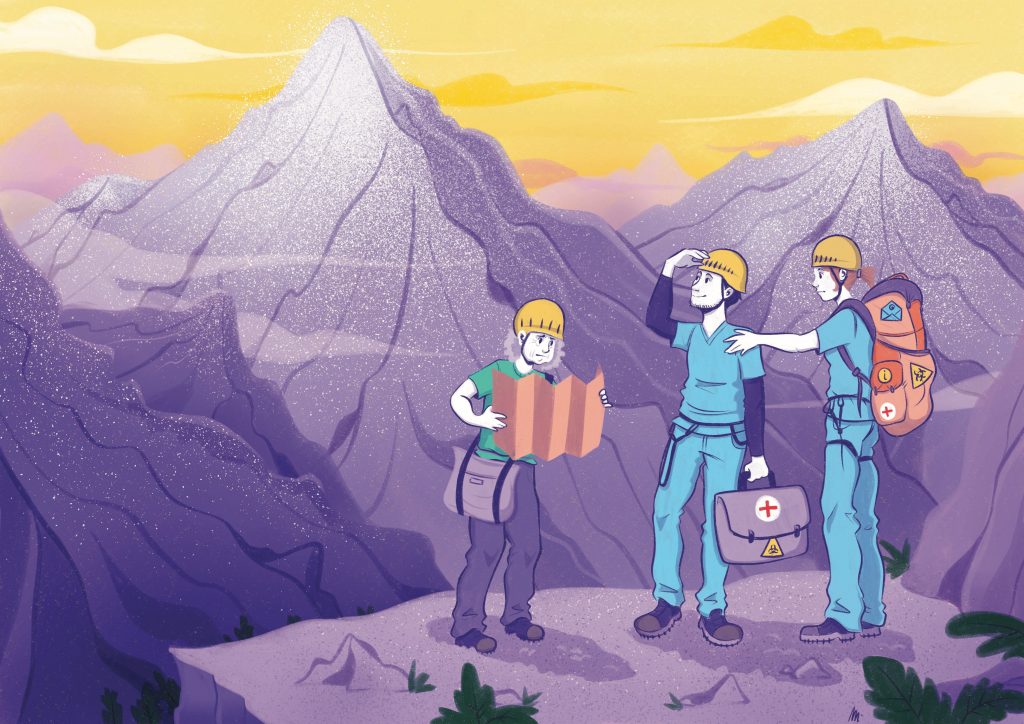
For most cancer patients, nurses are their first or main point of contact. Nurses are there when you’re having a routine screening, they support you when you’re diagnosed, they’re the first person you see when you come round from surgery, they help you manage the side effects of chemotherapy. Having the same nurse as your designated key worker throughout your cancer journey helps patients navigate the complexities of the system at a bewildering, frightening time.
It’s the multi-faceted nature of the nursing role, combined with the fact that nurses are the largest group of cancer professionals, which gives nursing such great potential for optimising its contribution.
Realising the full potential of nurses to do what they do best needs to start with describing the wide range of contributions to care they are already making. Achieving such a description is the goal of an ambitious research project currently in progress. RECaN (Recognising European Cancer Nursing) has been gathering evidence on what cancer nurses are contributing to patient outcomes.
It is led by the European Oncology Nursing Society (EONS) and supported by ECCO.
Evidence of benefit
Phase 1 of the RECaN project involved combing through the existing literature on trials of interventions delivered by cancer nurses. The study, published in 2018, is the first systematic review to focus on defining the impact of cancer nursing on patients’ experiences and outcomes across the spectrum of cancer (Int J Nurs Studies 2018, 86:36–43).
More than two hundred studies (with almost 250,000 participants) were included in the evidence synthesis. They covered interventions delivered across the cancer continuum, from prevention and risk reduction to survivorship, but the majority related to the treatment phase, with most having a teaching, guidance or counselling component (see box The literature review). Almost three quarters of the interventions were nurse-led and a majority were delivered by specialist cancer nurses or advanced cancer nurses.
The findings, say the review authors, show that, “Cancer nurses are performing multiple and increasingly complex roles in a variety of settings across the care continuum. The roles are diverse, requiring considerable expertise in many specialist areas of clinical cancer care, in addition to research skills.”
“When I think about what the junior doctors used to do years ago, we do most of it now”
Yet, as they point out, the intervention studies in the literature search represent “only a fraction of those actually delivered by cancer nurses internationally,” because nurse-led interventions are historically under-examined and also researchers often don’t make it clear in their papers who is leading the intervention they are trialling.
Sulosaari Virpi, a Finnish clinical cancer nurse now working in education, agrees that successful nurse-led interventions don’t always get recorded as such: “We have many examples of nurse-led interventions, such as the education intervention when the patient is starting chemotherapy, or a follow-up for breast cancer patients. Our weakness is that we rarely publish the results.” One reason may be time constraints: unlike physicians, it is very rare for nurses to have contracts that allow them to ringfence a proportion of their time for research.
Impact on patient safety
Phase 2 of the RECaN project compared aspects of cancer nursing across four European countries, with a particular focus on safety, working conditions, recognition and management. The countries were Estonia and Germany, where the nursing role is less developed, and the Netherlands and the UK, where it is more advanced.
One way they did this was by asking cancer nurses from the four countries to fill out the Hospital Survey on Patient Safety Culture. Developed by the US Agency for Healthcare Research and Quality, the survey measures a hospital’s safety culture across 12 dimensions, focusing on how managers and staff understand their organisational values, beliefs, and norms about what is important and what attitudes and behaviours are expected and appropriate.
Many of the dimensions relate to interpersonal relationships between medical staff. ‘Communication openness’, ‘teamwork within unit’ and ‘teamwork across hospital units’ are all seen by HSPSC as predictors of safety outcomes. So too is ‘non-punitive response to error’.
The purpose was to investigate how different aspects of a patient safety culture vary across countries with differences in the status and roles of cancer nurses. The survey attracted almost 400 responses.
The literature review
A systematic review of the impact of nursing on patient outcomes and experiences, drawing on international evidence, covered hundreds of successful nurse-led cancer care interventions.
While the majority related to the treatment phase, they revealed the important role nursing plays at every stage of the cancer journey. Examples include:
Public Health: a report by the World Health Organization presents two decades of evidence that nurses have a key role in reducing tobacco use, and growing evidence that nurses help to reduce harmful use of alcohol (WHO 2013, Human Resources for Health Observer – No. 12).
Screening: the same WHO report describes nurses’ work in cervical cancer screening as one of the “best buys” to tackle the global burden of cancer.
The Cancer Journey: Canadian research finds that cancer nurses are uniquely positioned to ‘translate’ clinical information for patients and navigate them through their cancer journey. The report found that nurses “provide the highest level of service and support for patients” (Eur J Cancer Care 2010, 20:228-36).
Palliative Care: a study published in Seminars in Oncology Nursing acknowledges the contribution of nurses to the evolving field of palliative care (Semin Oncol Nurs 2010, 26:259‒65)
The RECaN review covered 214 studies involving almost 250,000 participants. The authors commented, “This review provides novel insights to enhance our current understanding of cancer nurses’ evolving roles as trialists, and identifies the focus, to date, for the delivery of complex interventions by cancer nurses. As such, it forms the basis of an ongoing dialogue that we hope will transform awareness of the extent and level of contribution that cancer nurses are making to improve cancer care. In an era of distributed knowledge and search for cost-effective innovation to meet demand we suggest that the contribution of cancer nursing should be better recognized.”
Preliminary results show that, overall, cancer nurses in the UK and Netherlands rated the patient safety culture significantly higher compared with the other two countries. Cancer nurses in the Netherlands gave the highest ratings for ‘number of events reported’, ‘communication openness’ and ‘non-punitive response to errors’. Cancer nurses in the Netherlands and the UK gave the highest rating for ‘frequency of event reported’.
EONS President Lena Sharp says the statistical findings of poorer patient safety culture being associated with a less developed role and status for nurses was supported by anecdotal evidence, which included reports of nurses being explicitly told not to question what a medical colleague says, regardless of whether they are right or wrong. Failing to recognise the central role nurses play in patient care can put patient safety at risk, she says. “Cancer nurses’ role in patient safety is important and requires better recognition, in all countries.”
Quality of care
Martina Spalt, an advanced practice nurse at Vienna University Hospital, is clear that care is better when nurses are respected and their contribution is recognised. “Knowledge from nurses is underestimated, and could inspire and enrich other health professionals in the team. It is well known that nurse professionals are closest to patients and build up a therapeutic relationship with them. If nurses are recognised for providing trustworthy and reliable information and help, treatment can be improved towards a higher level of quality.
“From my own experience, when the appreciation of nurses was low, the quality of care provided was low. Communication only works out if everybody is respected and valued. Then a productive discourse can take place between equal partners and the best solution can be found.”
Anu Viitala, President of the Finnish Oncology Nursing Society, has specialist skills in pain management and palliative nursing, and currently works as Clinical Research Manager at Tampere University Hospital. She argues that respect for the contribution made by specialist nurses, and their expertise, is one of the reasons Finland enjoys one of the world’s highest cancer survival rates. “The oncology outpatient clinic and palliative care unit in Tampere has teams of doctors and nurses, and many times there are situations where a nurse’s efforts in patient care are needed a lot, even more than a physician’s. A care-pathways working group might be as many as 15 people – doctors, nurses, social workers – and still have a nurse as the lead of that group, and it is fine by all group members.”
These observations are echoed by responses to the annual NHS England National Cancer Patient Experience survey, as noted in the executive summary of the 2014 survey: “a Clinical Nurse Specialist working with the patient to support them is the factor most likely to be associated with high scores in every one of the 13 tumour groups that we use to analyse the data.”
Investing in specialist education
Some countries are now doing more to recognise the role of specialist nurse – and reaping the benefits for patients. The Netherlands seems to be leading the way, as the only country with a one-year cancer nursing programme, based on a national curriculum. There is also a MSc degree in Advanced Nursing Practice, different from the one-year cancer nursing programme, which qualifies you as a nurse specialist.
The role of nurse practitioner has only been officially recognised by Dutch law since September 2018, but it isn’t a new concept for oncology professionals, says Suzan Ras, an oncology nurse practitioner at Franciscus Gasthuis & Vlietland general hospital in Rotterdam. “It’s only the government recognition that is new. The nurse practitioner role was trialled for five years. Then the government realised it’s very good for patients, it’s very good for care, so they made it official in special law.”
In many countries, however, while postgraduate qualifications in cancer nursing exist, they are not officially recognised and confer no change in status, role or pay. Austria is a case in point, says Spalt. “A cancer nurse in Austria may have advanced training in oncology, but currently there is no official differentiation between a registered nurse and a cancer nurse.”
In Portugal, the Ordem dos Enfermeiros (National Nursing Board) gives specialist certification in six healthcare areas, but cancer is not one of them. Joana Silva works at an outpatient unit at the Vila Nova de Gaia central hospital, where she administers chemotherapy and immunotherapy and helps patients manage the side effects.
Silva always intended to work with cancer patients, but as cancer is not a recognised nursing specialty, after her basic nursing qualification she opted for specialist training in mental health/psychiatric nursing, focusing her studies and coursework on the mental health aspect of cancer nursing wherever possible.
What frustrates her most is the lack of career opportunities to use the additional knowledge and skills she has
She studied in her own time and at her own expense, and says she was motivated by the need to evolve as a healthcare professional and improve patient care, “mainly because the cancer area is constantly updating knowledge, and nurses must provide evidence-based care.” The thing that frustrates her most is the lack of career opportunities to use the additional knowledge and skills she has.
“Getting a qualification in a recognised specialism means that the OE [National Nursing Board] gives you a certificate and you get to call yourself a specialist nurse, but it doesn’t automatically translate into a pay rise or new responsibilities.”
Not so long ago, she says, getting a specialist nursing qualification would almost automatically fast-track you into a management position, which gave added responsibilities and higher pay, but no opportunity to actually use your specialist skills to benefit patient care.
Nowadays, nurses get more of a chance to use their specialist skills, but often without formal recognition of the higher value of their contribution within the care team. “Your employers might recognise your new skills, especially if you’re actually applying them in the job, and give you new
responsibilities or a pay rise on the strength of them, but they might not.”
What this means for her own career options, says Silva, is she can either apply for a job in her specialty area, at a psychiatric day care unit or a psychiatry ward, which would mean no longer focusing her work with cancer patients. Or she can stay where she is, not use her additional skills and not get a pay rise. Or she can stay where she is, try to apply her additional mental health and psychiatry nursing skills, and hope she will get rewarded with higher pay.
Heleri-Mall Roosmäe, President of the Estonian Oncology Nursing Society, who was involved with the RECaN project research in her country, tells a similar story. “Cancer nurses in Estonia have been trained by themselves independently while working in the department of oncology (or haematology, or onco-surgery). But official recognition [of cancer nursing as a specialism] would mean that specialist nurses received professional training and became more aware of the disease, its treatment, the side effects of that treatment and also safety measures. It would be enormously better for the health of the patients.”
In some countries, in the absence of any leadership from governments, specialist oncology training schemes are being implemented independently by educational bodies and cancer nursing societies. This is what happened in Austria, where universities and colleges took the initiative to organise a nationwide cancer nursing education programme, without any input from the government.
Passing the programme entitles a nurse to be called a certified cancer nurse, says Christine Schneider-Worliczek, a registered nurse working in the oncology department of the University Hospital of Salzburg. There is no official title, however, and nurses with this qualification don’t automatically get paid more – although some hospitals voluntarily choose to give qualified cancer nurses a pay rise.
AHOP, Austria’s national cancer nursing society, also delivers training programmes for cancer nurses that were developed by EONS. These include ‘TITAN’ (to improve skills and knowledge when working with patients with cancer-related thrombocytopenia, anaemia and neutropenia) and ‘target’ (to give nurses a greater scientific understanding of targeted therapies including immunotherapy). Training on specific topics such as nausea or mucositis is also carried out, free to members, at AHOP’s annual spring convention.
When the role of cancer nurses is respected within multidisciplinary teams, it’s hard for policy makers to withhold recognition
“The better the nurses are qualified, the better they can accompany a patient along the journey through cancer. Side-effect management, psychosocial guidance can be delivered on a much higher level,” says Schneider-Worliczek. “Getting a diagnosis of cancer means standing at the edge of life,” she adds. “This is a situation where it is essential to have a well-trained nurse at your side.”
The groundwork for establishing national cancer nurse courses and qualifications has already been done by EONS. Its Cancer Nursing Education Framework identifies the fundamental knowledge and skills required for a nurse working in cancer care, and can be used as guidance for developing a national training programme. Since the Framework was launched in 1991 as the Post-basic Curriculum in Cancer Nursing, it has been extensively revised multiple times to reflect the expanding roles of nurses, along with other developments within cancer care (see p 54).
But we have a catch-22 situation: if, despite demonstrably improving patient care, specialist knowledge and skills are not recognised with formal qualifications and status, that lack of respect for the value of the specialist nursing contribution makes it hard to convince the authorities to introduce such qualifications.
Cancer nursing varies widely across Europe
The second phase of the RECaN (Recognising Cancer Nursing in Europe) research project compared the roles, education and status of cancer nurses in the Netherlands, the UK, Germany and Estonia. The four countries had in common that cancer nurses are devoted to their jobs, they have important relationships with patients and their families, and they are overloaded with work. Important differences were found in: tasks and responsibilities, levels of education, recognition, professional status and autonomy, career possibilities, safety issues, teamwork and support.
The full findings of the RECaN case studies have been submitted for publication in the Journal of Advanced Nursing.
Germany
- Variation in training, most nurses have no academic degree
- Nurses report less autonomy = hard to develop practice
- Nurse shortages
- Nurse competences are not used effectively
- Two-year education programme in cancer care (not academic)
- Lobby groups have opposed higher education for nurses
- Advanced nursing roles are being developed but in very few institutions. Pay increments that apply for other health care professionals with Master’s degrees do not apply
- Little response when nursing organisations try to impact political leaders
- Nurses report there is no/little recognition for nursing care
Estonia
- No specialist training in cancer care*
- Few career possibilities in clinical cancer nursing
- Little autonomy and recognition
- Many nurses need more than one job
- Long shifts
- Nursing shortages
- Importance of leadership
- Support from some leading physicians
*As of September 2018 a nursing Master’s degree is up and running
The Netherlands
- Two-year cancer nursing programme based on national curriculum
- National standards require that 50% of nurses in cancer care should be qualified (by 2022)
- All cancer drugs should be delivered by qualified oncology nurses
- Good clinical career possibilities
- Advanced nursing roles well established and regulated
- Initial resistance overcome by successful lobby work
- Autonomy and recognition
- Strong support by patient organisations
- Fewer nursing shortages compared with the other countries
United Kingdom
- Specialist training in cancer care
- Good clinical career possibilities
- Autonomy and high professional status
- Advanced cancer nursing roles well established
- Initial resistance
- Teamwork
- Severe nursing shortage, migration
- Importance of leadership
- Systematic work on safety
Source: Lena Sharp, presentation at ESMO Congress 2018, Munich
Germany is an example of a country with strong political opposition to higher education for nurses. The Care Professions Reform Act (Pflegeberufereformgesetz), which passed in 2018, originally represented a move away from specialism, with plans to merge the three previously separate care qualifications (in nursing, paediatric care and geriatric care). It caused controversy because of concerns that, if all nurses had the same generalist training, they could move between roles more easily and that nurses in the badly-paid field of geriatric care would switch to a different occupation. (The idea of reducing this risk by paying geriatric nurses more does not seem to have featured in the debate.)
In the end, legislators compromised by creating a two-year generalist qualification, to be followed by a third year, where nurses can choose whether to specialise or continue with general training. The idea of encouraging nurses to specialise in cancer care through the creation of a clear career path and appropriate remuneration, however, seems very far away.
Contrast that with the neighbouring Netherlands and its official cancer nursing programme. There was political opposition there too, says Suzan Ras, but doctors played an important role in supporting the professional recognition of cancer nurses.
“It’s always difficult to introduce a change,” she comments, “so you have to show them you’re worth it. If you have an oncologist who is very fond of your role as a nurse practitioner, I think that’s half the battle, but if you have to convince your oncologist, I think then you have a big struggle”.
When it’s normal for cancer nurses to have their specialism respected within multidisciplinary teams, it’s hard for policy-makers to withhold that recognition, especially when doctors speak up as part of the wider national conversation.
Recruitment and retention
Gordana Lokajner, former medical director for nursing and care at the Ljubljana Institute of Oncology, in Slovenia, argues that the lack of a career path and a failure to recognise and reward specialist nurses appropriately is a major driver behind a shortage of nurses in her country. “Unfortunately, we do not yet have access to oncology nursing specialisation, which naturally represents one of the biggest obstacles to attracting and retaining young people in oncology nursing.”
Standards of cancer nursing are still high, she insists, but only thanks to the enormous effort put in by staff, which is simply not sustainable. “But decision-makers only react when the situation presents a risk to patients, which is of course too late. In the long run, this could bring our healthcare system to the verge of collapse,” she says.
She is arguing for urgent changes on a number of fronts: “Correct and fair payment for excellent nursing care, a safe work environment, sufficient staffing and a good skill mix in nursing, the possibility for professional growth, and listening to nurses when forming healthcare policy.”
Lokajner’s comments have implications for the strategy backed by ECCO, as well as the EU, to expand the size and competencies of the specialist nursing workforce as a key response to the increasing demand on health services as people are living longer with chronic conditions. The strategy requires investing in nursing services, including rewarding advanced knowledge and skills and greater responsibilities with higher pay.
Germany is an interesting case; nursing is the only healthcare profession where gaining a Master’s degree does not result in a salary increase.
Even in the comparatively well-paid Netherlands, says Suzan Ras, pay has not increased to reflect the added value nurses contribute as a result of their specialist training and expanded roles. “These days the care is more complex than 10 years ago. Wages have kept up with inflation, but the job is more difficult. You can’t do anything on automatic pilot… you have to educate yourself about all these different treatments with different side effects, now including immunotherapy, and you have to make the right decision. Patients have other diseases, intersecting problems, and you have to treat everything. Nurses should be paid more because it is hard work, physically and mentally.”
At the other end of the scale, many countries simply don’t pay nurses enough to live on. RECaN found that 11% of nurses in Estonia have more than one job. Many arrange their working week to fit in their other jobs, which means 24-hour shifts are common. “Many nurses [in Estonia] have two jobs, and often both are full-time,” says Roosmäe. This all reduces the time spent on self-development, resting and positive attitudes. Irritated and tired nurses do not do their best work or communicate properly with patients or colleagues. They are burning out.”
Spalt believes that this comes back to false assumptions about nursing. “Often nurses are ranked on the emotional level and doctors on the knowledge level. Of course building up a therapeutic relationship with patients is an important part of nursing, but this doesn’t happen without extensive underlying knowledge. At the moment, the expert knowledge of nurses in oncology is not adequately recognised, either by doctors or by patients.”
The problem is not just the failure to value nurses for their knowledge, she adds, but a tendency also to undervalue the ‘soft skills’ of caring and communication, even though these skills are highly valued by patients and linked to better patient outcomes.
Next steps
Challenging these assumptions is the focus of phase 3 of the RECaN project, which is looking at how to better promote cancer nursing as a recognised speciality across different political or health contexts within Europe. Key to this advocacy will be the evidence generated by the RECaN literature review and the case studies comparing cancer nursing in the UK, Netherlands, Germany and Estonia.
As EONS President Lena Sharp points out, that evidence may not be “revolutionary” but it is important, as it spells out the value that cancer nurses contribute when they get the chance, and by implication, the opportunities being lost in health systems that unnecessarily restrict the nursing role.
Sharp is optimistic that the project will help change attitudes and policies. She cites the example of Estonia, which started its first Master’s programme in nursing in September 2018, with 120 nurses now enrolled. This initiative followed meetings that EONS held with hospital leaders and other stakeholders in 2017, in the context of RECaN. “The leading people, including Kristi Rannus, the Nurse Director in Tallinn, say the RECaN project was an important factor behind this achievement,” she says.
EONS Cancer Nursing Education Framework
The European Oncology Nursing Society launched its Cancer Nursing Educational Framework in May 2018. It replaces the Post-Basic Cancer Nursing Curriculum, which had been created in 1991 and revised many times over the following years.
It identifies the knowledge, skills and competencies required by nurses who care for people affected by cancer, and can be used as the basis for developing national curricula.
It uses the European Credit Transfer and Accumulation System (ECTS) – the international standard for identifying how much studying is involved in a course. The Framework is equivalent to about 60 ECTS credits, which means roughly one full year of academic study.
www.cancernurse.eu/educationcancernursingeducationframework.html



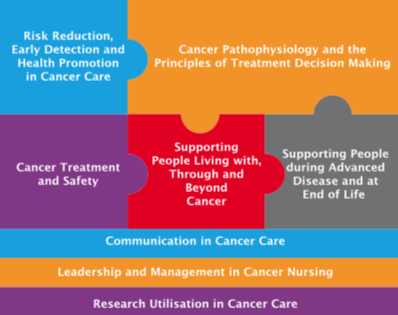
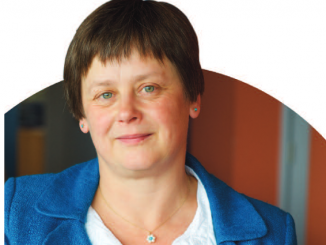
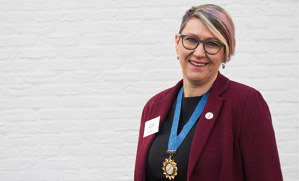
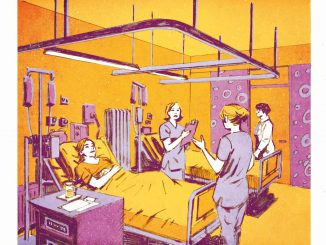
Leave a Reply